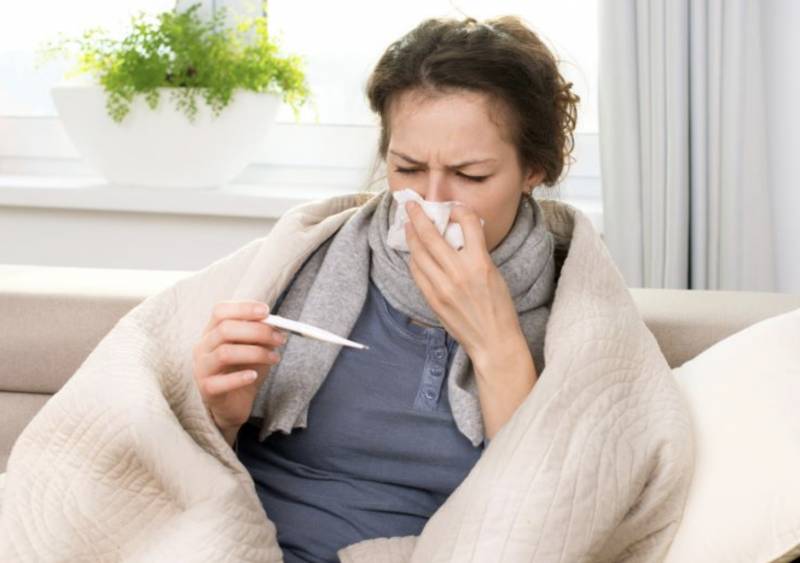Date Published: 13/12/2024
Experts warn of the possibility of a flu pandemic coming to Spain
Infectious diseases have seen a significant increase in numbers across Spain throughout 2024

From avian flu, dengue, west Nile virus and sexually transmitted diseases, infectious diseases are on the rise throughout the world, and Spain is already being affected. For this reason, experts warn of the need for improvements in the speciality of infectious disease within the country as soon as possible.
Experts are also calling for the strengthening of surveillance systems, even more so when all indicators point to the fact that the next pandemic will be caused by the flu. This very message was stated by the heads of the Spanish Society of Infectious Diseases and Clinical Microbiology, when seeking greater measures to contain the H5N1 avian flu and its highly pathogenic capacity.
As of yet, there is no current evidence that humans can pass on bird flu to one another. However, with the recent spread of the virus on farms in the United States and its jump to domestic species, there is a risk that humans could begin to infect one another in the near future. Moreover, 50 cases have been diagnosed in humans this year, most of them workers in agricultural facilities, which shows that humans can catch the infectious disease.
The president of the SEIMC, Federico García, however, has stated that the evolution of H5N1 avian flu "has clearly worsened", but he continued by stressing that Spain has a protocol in place in order to detect and tackle the problem. However, Mr García did point out that the Spanish system "may not work" when the next pandemic arrives in Spain.
Mr García then went on to tackle the problem that is particular to Spain amongst the other European countries. Spain is the only nation that does not currently have a specialised infectious disease medical practice for treating people in pandemic times.
"The new challenges of infectious diseases in Spain make it necessary to have specialists with complete and up-to-date medical training in the field, which allows us to respond with guarantees to these emerging challenges due to the increase in intercontinental mobility, climate change and globalisation processes or resistance to antimicrobials," stressed García.
He continued by stating that it was fundamental for "24/7 microbiology services" in hospitals in order to deal with the stresses of infectious diseases on a daily basis.
"It cannot be that a hospital's Microbiology department closes at 3pm on a Friday and the samples are not processed until the following Monday," said Francisco Javier Membrillo, vice-president of SEIMC. The evidence also shows that if an expert in the field is present in the hospital when a case is admitted, then the chance of survival for the patient increases.
Furthermore, the meeting also addressed the spread of vector-borne diseases such as the West Nile virus, oropouche and dengue, a situation exacerbated by rising global temperatures. The West Nile virus has recorded the highest numbers in Spain since records began as people throughout the south of Spain, all the way up to Salamanca, have been affected by the disease which is carried by mosquitoes.
Although most infected people have mild symptoms, there are cases that end up leading to death. Membrillo has therefore warned of the need for better training for healthcare workers and for them to have a "clinical unit that provides support".
Moreover, Spanish experts have warned of the steady increase in sexually transmitted infections since 2005. Dr. Fran Franco-Álvarez de Luna, belonging to the SEIMC, has attributed this rise to the change in attitudes amongst the young and society as a whole in the past twenty years.
Experts have praised the fact that diagnostic capacity has increased in this field in recent years, but they call for greater unification by the Autonomous Communities when it comes to detecting cases. However, experts also claim that society has lost its fear of HIV and the dangers it can pose.
Therefore, the specialists stressed the importance of preventing future pandemics by strengthening surveillance systems, promoting rapid diagnostic techniques and raising awareness among the population about preventive measures and individual responsibility
For more information, news and what’s on visit our homepage at Spanish News Today
Image: Archive
Loading
Sign up for the Spanish News Today Editors Roundup Weekly Bulletin and get an email with all the week’s news straight to your inbox
Special offer: Subscribe now for 25% off (36.95 euros for 48 Bulletins)
OR
you can sign up to our FREE weekly roundup!
Read some of our recent bulletins:
Discount Special Offer subscription:
36.95€ for 48 Editor’s Weekly News Roundup bulletins!
Please CLICK THE BUTTON to subscribe.
(List price 3 months 12 Bulletins)
Read more stories from around Spain:
Contact Spanish News Today: Editorial 966 260 896 /
Office 968 018 268




























